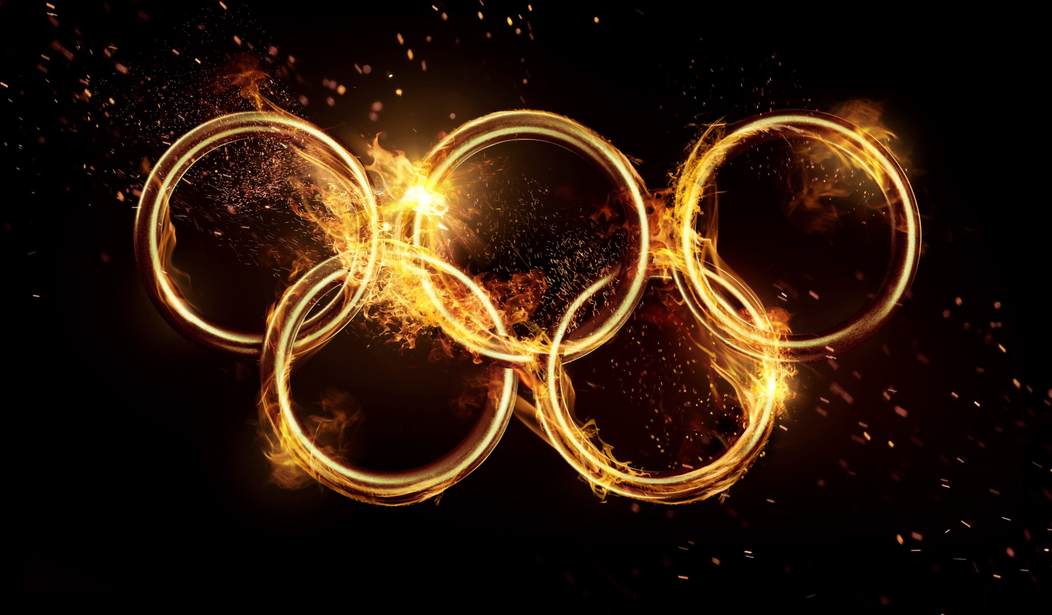Social media managers beware: your tweets about the Olympic Games may be off-limits. Words like “Olympic,” “Olympian,” and “Go For The Gold,” as well as hashtags like #Rio2016 or #TeamUSA. And it gets worse: you can’t even use world involving “Olympic,” such as Mathlympics, Aqualympics, or Chicagolympics.
No, this is not some kind of 1984 fictional reality game — it’s the official rules for non-sponsor “commercial entities.” According to Rule 40 of the United States Olympic Committee (USOC) and the International Olympic Committee (IOC), you can’t even wish specific athletes luck — even if you’re sponsoring them!
“Commercial entities may not post about the Trials or Games on their corporate social media accounts,” reads one letter sent by USOC Chief Marketing Officer Lisa Baird, according to ESPN. “The restriction includes the use of USOC’s trademarks in hashtags such as #Rio2016 or #TeamUSA.”
Sounds bad? That’s not the half of it. According to AdWeek’s Christine Birkner, the list is exhaustive. She lays out no less than TWELVE different types of forbidden words, phrases, and images:
1. Olympics’ trademarked words or phrases, including: Olympic, Olympian, Future Olympian, Go for the gold, Let the games begin, Pan-American.
2. Terms that reference the location of the Olympics, including: Road to Rio, Road to Pyeongchang, Road to Tokyo, Rio 2016, Pyeongchang 2018, Tokyo 2020.
3. Words that incorporate “Olympic,” such as Mathlympics, Aqualympics, etc.
4. Hashtags with Olympics trademarks, including: #TeamUSA, #Rio2016, or #GoForTheGold.
5. Official Olympics logos.
6. Photos taken at the Olympics — as mentioned in Baird’s letter.
7. Names of Olympic athletes in social media posts.
8. Wishing luck to Olympians.
9. Any Olympics results.
10. Sharing anything from official Olympics social media accounts — even retweets are prohibited.
11. Any knock-off or self-made version of Olympic symbols, “whether made from your own logo, triangles, hexagons, soda bottle tops, onion rings, car tires, drink coasters, basketballs, etc.”
12. “Do not host an Olympic- or Paralympic-themed contest or team-building event for employees.”
Again, these are the OFFICIAL rules for the USOC. I would like to know how exactly they would enforce these rules without forcibly taking over the servers for Facebook and Twitter. Perhaps they intend to sue any company which accidentally retweets them?
Next Page: Pushback.
“The whole thing is ridiculous,” Sally Bergesen, CEO of Oiselle, a company which published pictures of athlete Kate Grace after she won the 800 meters at the trials earlier this month. The USOC contacted the company, reportedly asking that the photos be removed. Oiselle blurred images of Olympic property but did not remove the blogs.
USOC argues that the money from sponsors and licensees who pay for these rights allows them to support athletes to go to the games. Bergesen says the rules actually hurt athletes because companies that can’t support them during the games also cannot afford to pay them because of lack of promotion.
“It costs $300,000 to send an Olympian to the Games, and for our athletes, the USOC has reimbursed them about 1 percent of that cost,” Bergesen told ESPN. “Is that supporting them?”
Athletes can support a company which is not an official Olympics sponsor during the games and a non-sponsor can support an athlete, so long as they don’t mention anything about the Olympics specifically.
In the letter, USOC spokeswoman Baird said, “We need to give sponsors exclusivity to our intellectual property that is protected by U.S. law.”
Ironically, the official Olympic Committees have actually relaxed some of the rules, allowing companies to run ads — so long as they were approved, and started running in March, continuously throughout the games.
Bergesen attacked this “concession,” because it only helps huge companies. “A company like Under Armour can do that because they know that Michael Phelps is going to be in the Games,” she explained. For Oiselle, however, “We don’t know in January which one of our athletes is going to make the games.”
The company New Balance is not an official USOC or OIC sponsor, but it had more than 70 of its athletes qualify for the games. “We find IOC’s Rule 40 extremely frustrating and challenging to work with as a brand which wants to celebrate the many amazing achievements of our hard-working global athletes,” New Balance spokeswoman Amy Dow told ESPN.
“It is also unfortunate that many athletes do not have the freedom or opportunity to support the brands that support them.”
Corporate sponsorship is hugely important for athletes who cannot attend otherwise, but they cannot always thank the companies who pay for them to attend.
“Athletes can certainly generically say, ‘Thank you for your support’ during the Games,” Baird told ESPN. “But a company that sells a sports drink certainly can’t post something from the Games on their social media page or website. They’re doing nothing but using the Olympics to sell their drink.”
While Baird emphasized that journalists are not bound by these stringent rules, so expect a great deal of controversy about it in the press. If you thought bad infrastructure and Zika virus outbreaks were the only bad stories to come from this year’s Olympics, you’re in for a big surprise.









Join the conversation as a VIP Member